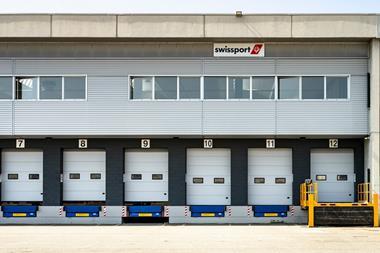UK employers’ organisation the CBI has responded enthusiastically to the UK government's approval of a third runway at Heathrow Airport .
President Paul Drechsler, said it came “as an enormous relief to firms in every corner of the country.” He described the plan as “fantastic news”, especially as the country had waited nearly 50 years for this decision, adding: “It will create the air links that will do so much to drive jobs and unlock growth across the UK, allowing even more of our innovative, ambitious and internationally focussed firms to take off and break into new markets.”
But with contracts to be put out to tender, apprentices to recruit and supply chains to build, “this decision must be taken forward swiftly, giving businesses the confidence to invest. Our aviation capacity is set to run out as early as 2025, so it’s crucial we get spades in the ground as soon as possible to reap the benefits for jobs and growth, precisely when the country needs them most.”
He also called for the new runway to form part of a long-term framework for aviation capacity for the whole country. Pressing ahead with key infrastructure projects like the new runway would give an economic stimulus and also would “show the world that we are well and truly open for business as we negotiate our exit from the EU.”
Meanwhile, the Chartered Institute of Logistics and Transport (CILT) – perhaps mindful of the controversy the decision is likely to arouse - called for the decision to be made a ‘win-win’ situation for all parties.
Chair of the CILT’s Aviation Policy Group, Paul Le Blond, said: “The end to uncertainty over airports policy is welcomed by logistics and transport professionals, whichever option they supported, but there can be benefits for all parties, who can now take action to ensure that the decision is implemented in the best possible way for all.
“Logistics and transport operators, from airlines to freight companies, should use the opportunities that this decision will bring to plan long-term investments in more sustainable infrastructure, equipment and working practices, in order to create a lower carbon footprint and to meet air quality standards.”
He called on communities around the airport to seize the opportunities created for employment and for supplying the expanding airport, not just immediately, but over a long-term period, through education, training and entrepreneurship.
CILT head of policy, Daniel Parker-Klein, added: “Government must ensure that the benefits of the decision are fully realised. The conditions set by the decision, related to aircraft noise, air quality and road traffic, must be strictly enforced.
"This will enable improvements to roads, rail and other infrastructure to be properly planned and investment justified, it will send messages to the aviation industry about the need to continually improve environmental performance, and it will help towards meeting quality of life targets.”










